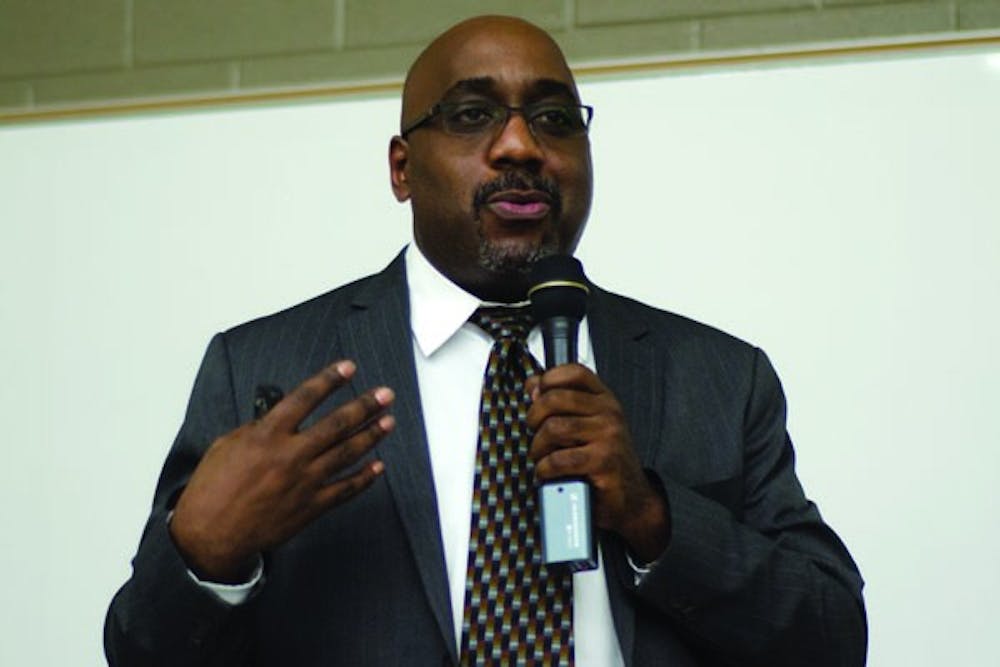Enrollment and shared governance highlight final A-Senate meeting

Vice President of Enrollment and Student Services Steven Johnson said Central Michigan University will adapt its enrollment strategies.
The state of Michigan has seen the second-highest decrease in high school graduates in the nation, and Johnson said it's important for CMU to continue recruiting students, despite the smaller selection of graduates.
"We have to compete for fewer and fewer students," Johnson said during Tuesday's Academic Senate meeting. "We have to find some other market in which to recruit."
According to Johnson, the state is expecting a 15-percent decline in high school graduates by 2020.
For the 2013 fall semester, undergraduate applicants are down 7 percent, admitted students are down 12 percent, and student orientation payments are down 20 percent at CMU. For transfer students, an 8-percent decrease has been noted for both applicants and admitted students.
"We want to make sure we position ourselves to have the right number of students at our university," Johnson said. "We need to go deeper to understand the students we're looking to recruit at this institution."
During the presentation, Johnson highlighted some of the enrollment challenges facing CMU, including increased competition with other institutions and college affordability.
"We have done our best to maintain (college affordability)," Johnson said. "Unfortunately, students are still graduating in debt."
The Enrollment Management Committee, whose role is to provide advice and council for CMU on enrollment, has met three times this year.
Some of the committee's initiatives include reviewing and verifying academic program offerings, promoting four-year graduation, and reviewing and updating the undergraduate admission criteria.
The committee is exploring making changes to the admissions process and reviewing financial aid distribution.
Shared governance
The Senate discussed and approved the final report for the Shared Governance and Communications Committee and approved the creation of the first Senate Standing Committee.
This committee is charged with oversight of shared governance operations at CMU.
“There will be 12 people on the committee,” Academic Senate Chairman and Co-Chair of SGCC Jim McDonald said previously. “Chairing the committee will be one member of administration and one faculty member to be selected by the A-Senate.”
McDonald said the committee will meet twice a year to discuss ideas for shared governance and report any suggestions they’ve received over the course of the year.
“This committee will also prepare an annual report to share with the university community,” McDonald said.
Fixed-term faculty representation
Tuesday's meeting also brought discussion on allowing some of CMU's 350 fixed-term faculty members to be represented in A-Senate.
Currently, fixed-term faculty members are allowed to serve on committees but are not allowed in the Senate.
"I'm sure many of you already appreciate the presence of fixed-term faculty on campus," Union of Teaching Faculty President Mark Shelton said.
While there is some support within A-Senate for the inclusion of fixed-term faculty, it is still unclear what protocol is best for CMU in either allowing or not allowing fixed-term faculty to have representation.
Shelton said one idea is to have one fixed-term faculty member from each college represented on the A-Senate.
A-Senate meetings are done for the semester, and will resume in the fall.



